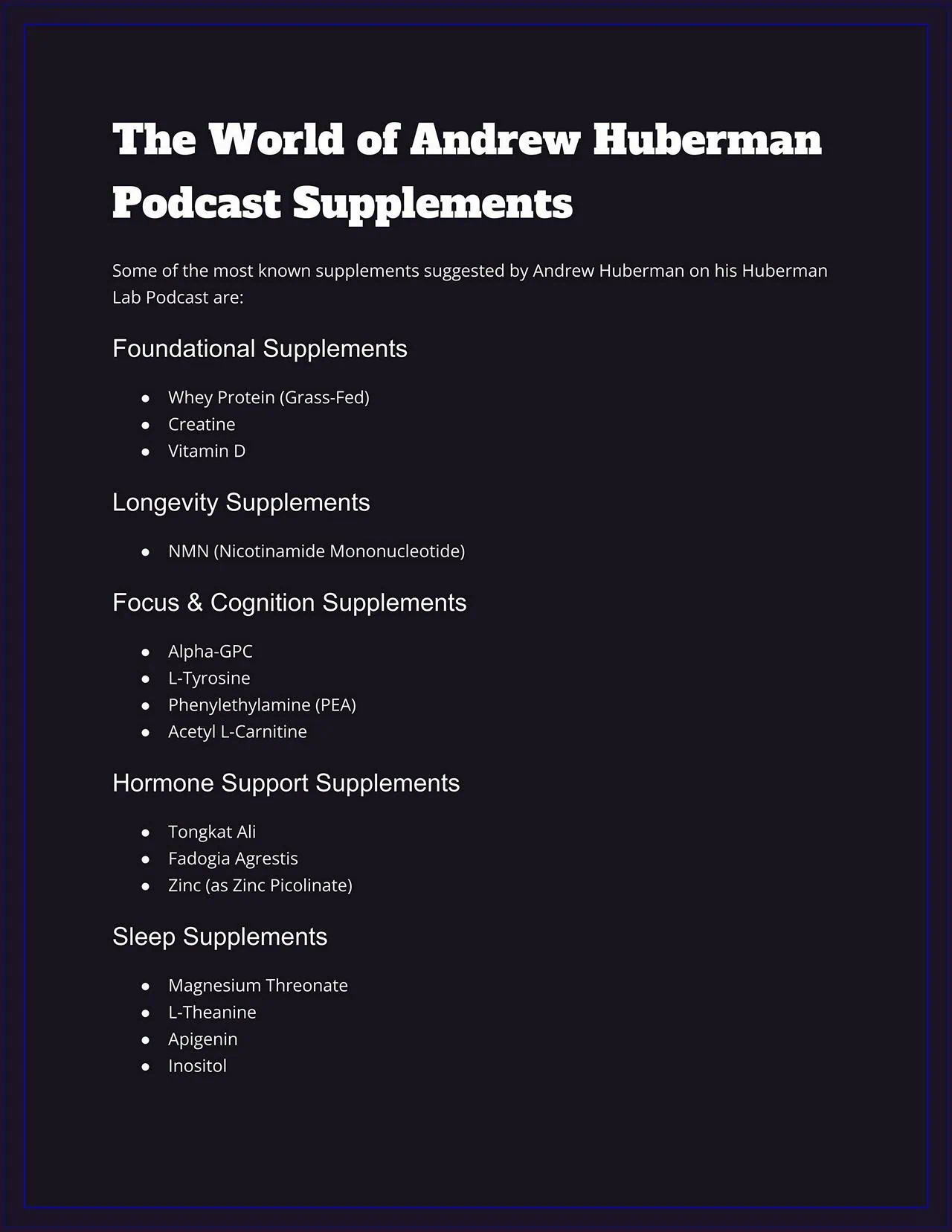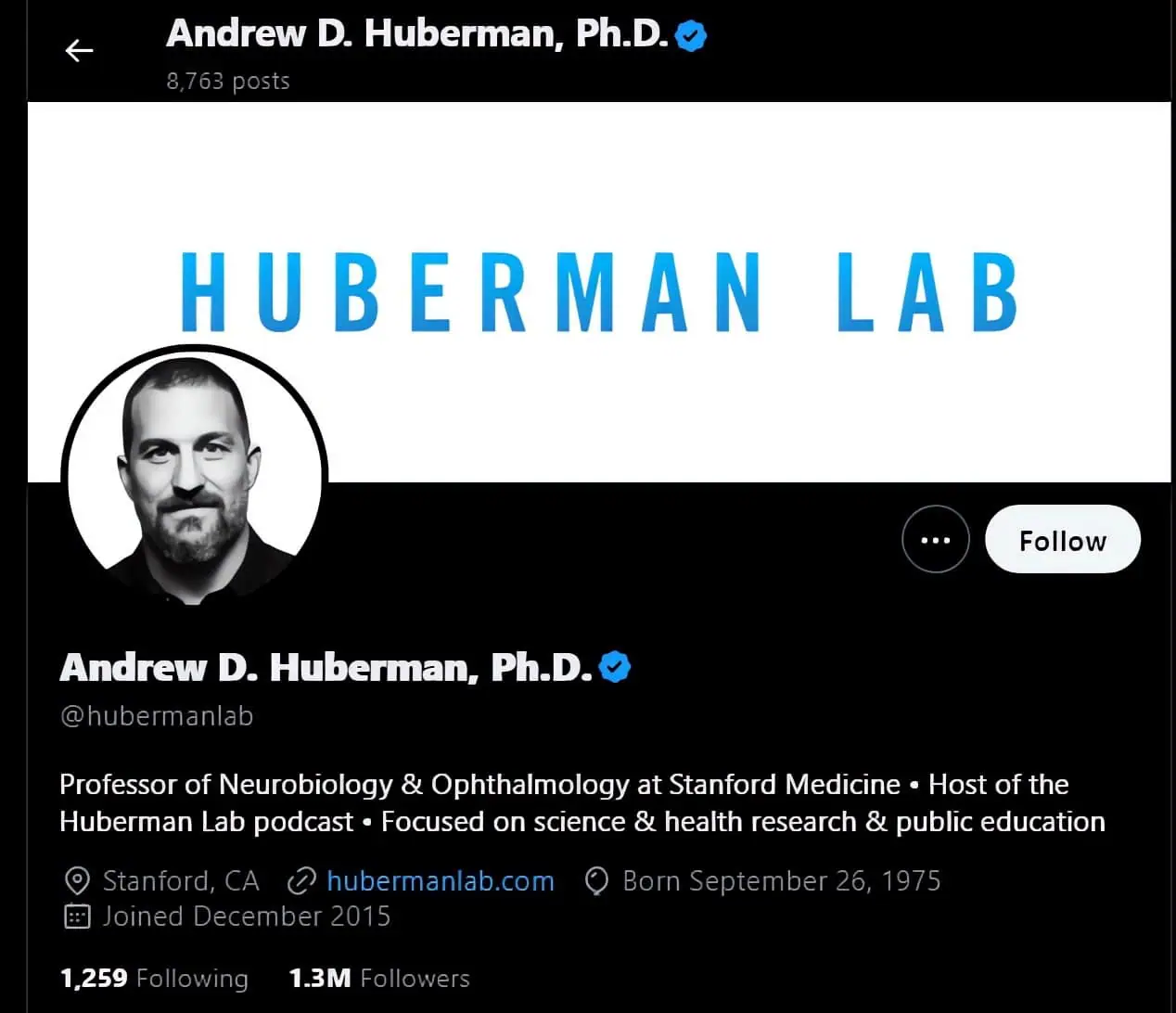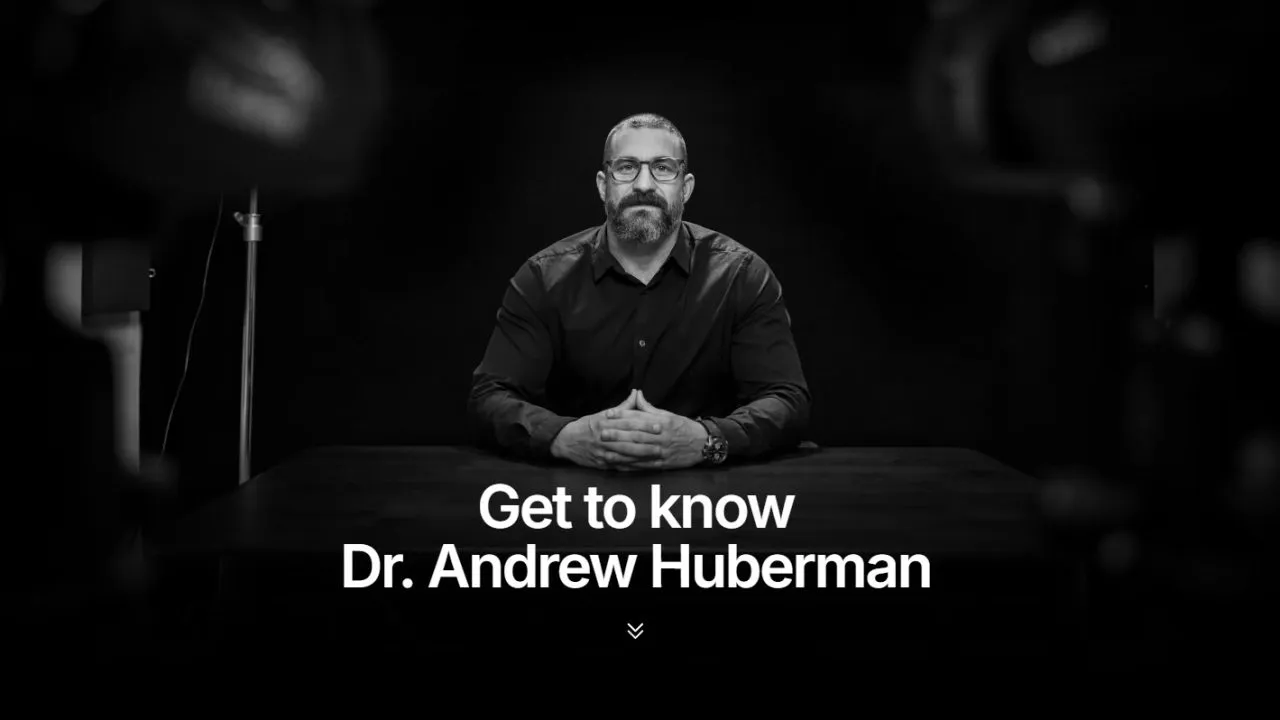Today's Saturday • 6 mins read
— By Dr. Sandip Roy.
What’s up with the supplements suggested and promoted by Andrew Huberman on his Huberman Lab podcast?
- Is his audience too naive to do their own research and make informed choices?
- Are his claims so credible and final that they don’t need further research?
Andrew Huberman is a genuine neuroscientist. He has a Ph.D. in neuroscience from the University of California, Davis, and an associate professorship at Stanford University, where he teaches at the School of Medicine.
His work in vision neuroscience is spectacular — he used virtual reality (VR) to stimulate nerve cell regrowth in the retina, a first.
In 2021, he launched the Huberman Lab podcast, which quickly became popular worldwide. His audience (including me) loves his tips for optimizing human biology (biohacking).
And this is where the problem started. His podcast recently came under fire for pushing pseudoscientific health claims and unproven dietary supplements.
This is a bit of a shock, considering his pristine academic credentials. I am puzzled as to why Andrew Huberman would mention these questionable supplements in his podcast.
Closer Look At The Huberman Lab Podcast
The Huberman Lab podcast has an alpha male minimalist approach.
We see a calm, authoritative, and convincing Andrew Huberman, dressed in black, sitting against a black background. He discusses the hackable aspects of human biology in a clear-headed way.
His credentials and list of publications are highly impressive (see the publications his Huberman Lab at Stanford produced).
He always emphasizes his podcast The Huberman Lab is separate from his academic role at Stanford University.
Everything on his podcast seems fine.
The World of Andrew Huberman Podcast Supplements
Huberman’s Recommendations. Some of the most known Huberman-recommended supplements are:

Foundational Supplements
- Whey Protein (Grass-Fed)
- Creatine
- Vitamin D
Longevity Supplements
- NMN (Nicotinamide Mononucleotide)
Focus & Cognition Supplements
- Alpha-GPC
- L-Tyrosine
- Phenylethylamine (PEA)
- Acetyl L-Carnitine
Hormone Support Supplements
- Tongkat Ali
- Fadogia Agrestis
- Zinc (as Zinc Picolinate)
Sleep Supplements
- Magnesium Threonate
- L-Theanine
- Apigenin
- Inositol

Andrew Huberman Controversy: Health Risks of His Supplements
Huberman has been seen recommending supplements like inositol and herbs like ashwagandha, turmeric, and tongkat ali.
However, as yet, there is no solid scientific evidence to support most of these. Many of the supplements he mentions haven’t been thoroughly researched. So, users run a risk of harmful side effects, especially in their liver functions.
From an early time, The Huberman Lab has been sponsored by companies. Look at his sponsors list here.
The products these companies offer range from daily supplement powders and personalized “smart drugs” to blood and DNA testing services.
The fact is:
Dietary supplements are often marketed as a form of health insurance, yet most people do not need them.
I repeat: Most of us do not require nutritional supplements or vitamins.
And that is where the scientific community and modern medicine practitioners stand against Andrew Huberman’s recommendations.
The US Preventive Services Task Force recommends against taking certain vitamin supplements without a tested deficiency.
Plus, the study of probiotics, which are included in some supplements, is still riddled with questions.
Impact of Huberman Lab Podcasts On Wellness Enthusiasts

A Podcast’s Unspoken Rules of Success
Podcasts in the health and wellness space often follow a specific formula for success:
Long episodes, experts who know their field, and people who can talk well.
Huberman’s regular episodes are 1–2 hours long. Snippets from these are often posted on YouTube Shorts and Instagram Reels to reach a wider audience. He hosts experts from diverse fields who can communicate persuasively.
All of this worked beautifully to make his podcast widely popular.
When podcasts reach millions of people, they draw sponsors ready to pay a lot to get their products mentioned. The financial incentive helps podcasters bear the production and hosting costs.
Sometimes, however, it may lead podcasters to promote poorly researched, controversial, and sometimes “New Kid On The Block” products — with legal disclaimers, of course.
And that’s where the downward slope starts. Actually, it’s a Huberman Lab podcast controversy, not an Andrew Huberman scandal.
Huberman’s disclaimer: “The Huberman Lab Podcast is for general informational purposes only and does not constitute the practice of medicine, nursing or other professional health care services, including the giving of medical advice, and no doctor/patient relationship is formed. The use of information on this podcast or materials linked from this podcast is at the user’s own risk.”
Indulgences of The “YouTube” Scientists
The world of podcasts has less regulation than academia, so it allows for the promotion of hype and pseudoscience.
Podcasts are typically “echo chambers” and the guests are more buoyed by fans and followers than peers and fellow academics.
Now, when Andrew Huberman endorses any supplement, his credibility as a neuroscientist inadvertently lends authority to the endorsed products. As a result, many of his audience rush to check out or buy the products he mentions on The Huberman Lab.
One viewer of the ADHD & How Anyone Can Improve Their Focus episode interprets his words as “rapid blinking increases dopamine.”
But looking through PubMed, you find this 24-year-old study: “Spontaneous blink rates correlate with dopamine levels in the caudate nucleus of MPTP-treated monkeys” (Taylor, Elsworth, & Lawrence, 1999).
Final Words
Is Andrew Huberman legit? Yes, Andrew D. Huberman is a bona fide scholar and gifted educator. His tweet on April 8, 2023, which received over 190k views, reads as:
“Where a study is published matters. But also who did the work. And the prior and long arc of the lead authors, and a lot more. Gauging the value of a paper almost always requires reading a lot of other papers in that field. No one factor prevails. They all matter. Lineage too.”
You might want to read one of his latest publications: Brief structured respiration practices enhance mood and reduce physiological arousal, 2023.
What may strike as odd is how Huberman’s influencer position has given credibility to some suspect supplements and weakly backed “bio-hack science” concepts.
To be fair, not every product you see his name on has his support. His website warns: “If you come across any mention of Dr. Andrew Huberman or the Huberman Lab podcast in connection with a product online, it does not necessarily mean we endorse it.”
That said, Andre Huberman has helped thousands understand and improve their health. Without a question, his legacy as a well-loved educator will outlive him, and justifiably so.
Huberman is not a bad influencer. I am his fan and follower.
However, his followers are better off critically evaluating the information and checking the effects vs. side effects of his or his guest’s recommendations before rushing to place orders.
I would tell his podcast listeners what I tell my patients:
- Eat a balanced diet, exercise daily, and get enough sleep.
- Consult a medical doctor before starting any podcast-recommended dietary supplement.
√ Also Read: Do Nootropics or Brain-Boosters Work?
√ Please spread the word if you found this helpful.
• Our Story!
